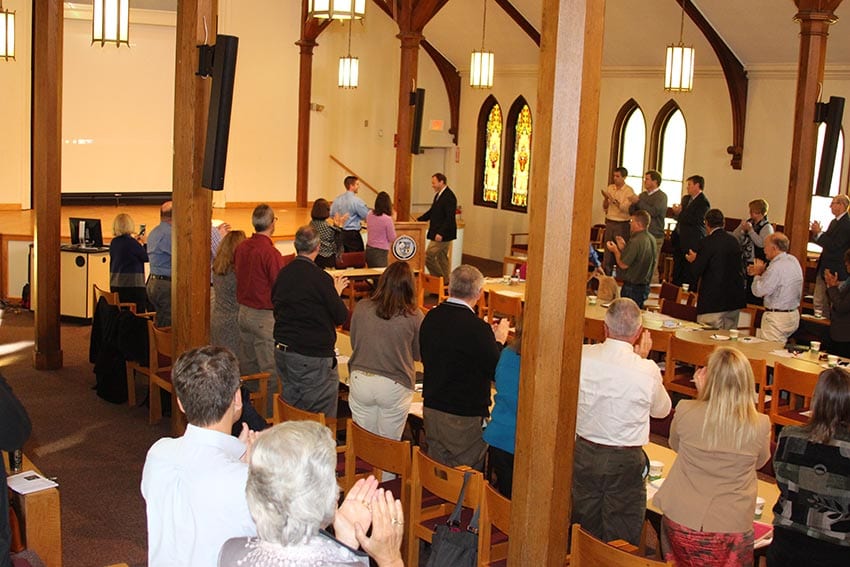
December 5, 2017
PORTLAND – About 75 affordable housing practitioners and advocates are meeting at the University of Southern Maine on Tuesday morning amidst mounting concern that Congress is days away from passing tax overhaul legislation that could drastically harm efforts to create and preserve affordable homes statewide.
The group will be joined by Diane Yentel, President & CEO of the National Low Income Housing Coalition, who called the tax proposal “unconscionable, unjust, and grossly irresponsible”. “Comprehensive tax reform could have been a once-in-a-generation opportunity to build more rungs on the ladder of opportunity by addressing one of the greatest barriers to economic success for families struggling to get by – the lack of decent, accessible and affordable homes for the lowest income people,” said Yentel. “Instead, the Republican tax bill breaks the rungs that so many Americans rely on to get ahead and threatens to slash the safety net that catches us if we fall.”
The House version of the tax reform bill includes provisions which would reduce the number of affordable homes created or preserved in Maine by nearly 50%, predominantly through the elimination of private-activity bonds, which trigger the 4% low income housing tax credits that are often used to finance affordable housing. Both the House and Senate versions also contain provisions which would reduce the value of 9% low income housing tax credits, the other principal tool used to build affordable homes in Maine. The devaluation of those credits would mean that fewer affordable homes would be built at that same time that the state’s affordable housing needs continue to grow. Census data now shows that there are only 46 rental homes affordable and available in Maine for every 100 extremely low income renter households.
Additionally, the House proposal would eliminate the federal historic tax credit, which has been used in combination with state historic tax credits to create a total of 894 new affordable homes and preserve another 251 in Maine over the past 9 years.
Beyond individual provisions within the different version of the bill, housing advocates are also highly alarmed by the projected $1.5 trillion increase to the federal deficit, and fear that Congress will quickly move to address that increase by cutting key domestic programs that help Mainers live healthy, productive lives.
“Providing massive, unpaid-for tax cuts for the ultra-wealthy and draining resources needed for other critical investments, including affordable housing, is an abomination,” said Greg Payne, director of the Maine Affordable Housing Coalition. “We all deserve better, and hope that Maine’s Congressional delegation will step up and show the courageous, common-sense leadership it has earned a reputation for.”

